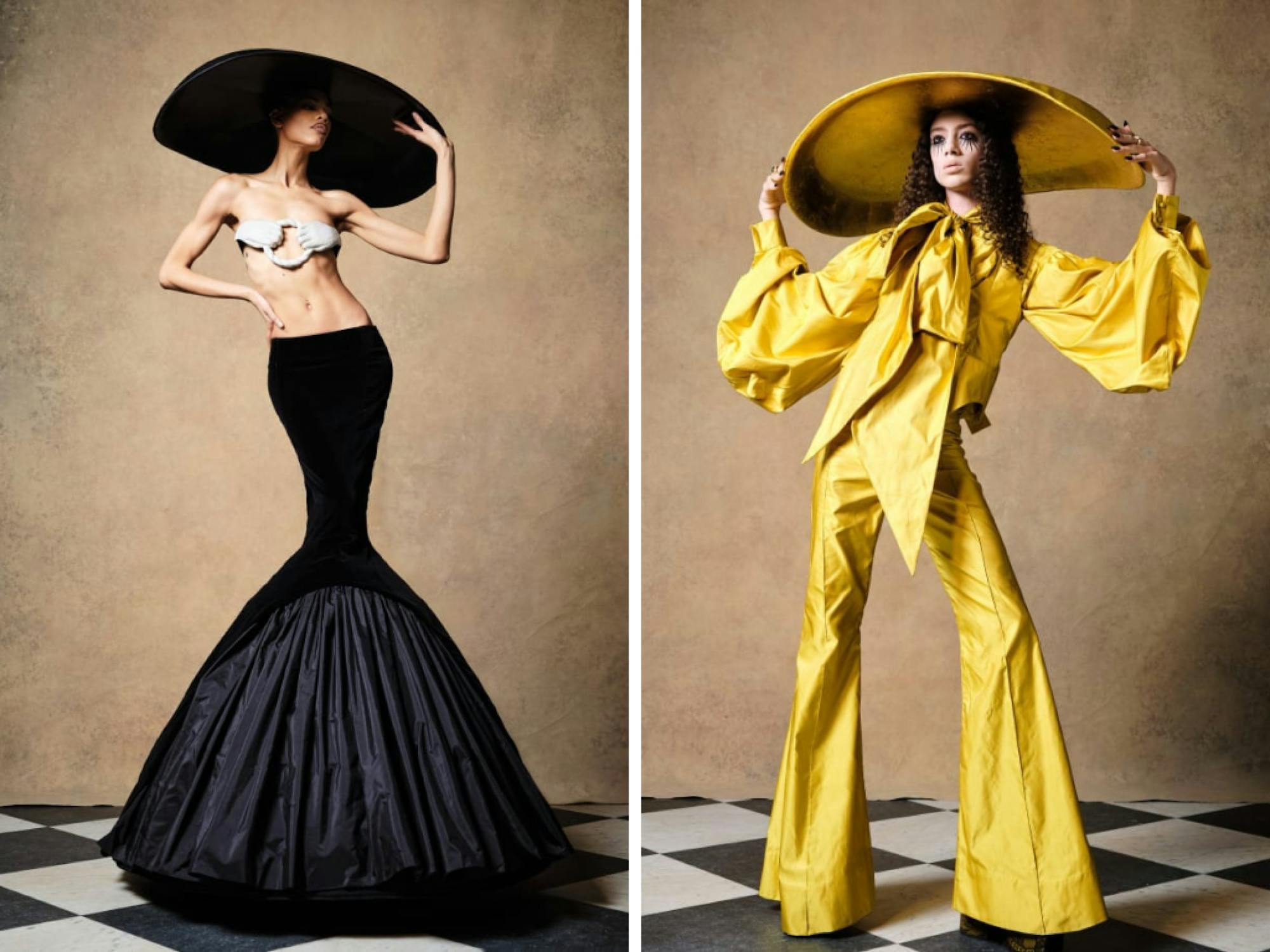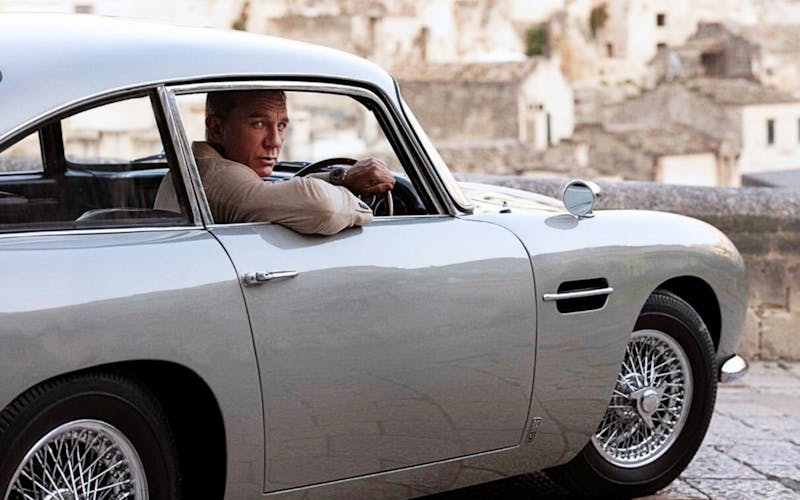

for Walpole members and
non-members available now
at The Londoner



It’s been 25 years since Liam Gallagher and Patsy Kensit were photographed on the cover of Vanity Fair, sprawled post-coitus-like on a bed festooned with the Union flag. “London Swings Again!” read the coverline, and for once it didn’t seem like publishing hyperbole.
This was 1997. London was frothing at the mouth with creative talent and a whiff of cultural change was in the air. Tracey Emin, the Chapman Brothers and Sarah Lucas ushered in a new form of art with their unmade bed installations, three-dimensional tableaux and fried eggs. Home-grown indie bands – Mansun, Rialto, Longpigs – saturated the music charts. Not
to mention Oasis and Blur, two guitar bands from either end of the country who managed to dominate cultural conversation for much of 1995 and 1996. (Were you Blur or Oasis? Your choice being somehow indicative of your class status).
British fashion was truly swinging too. Ozwald Boateng, a self- taught twenty-something son of a Ghanaian teacher, stormed Savile Row with his bold colours and redefinition of what it meant to tailor clothes for men. Working-class boys John Galliano and Alexander McQueen, meanwhile, were snaffled up by the Parisian fashion elites, to take over the reigns at Dior and Givenchy respectively. (Within a few years the French would do the same with two young British women, Stella McCartney and Phoebe Philo, who skipped off to reinvent Chloe.)
London nightlife meanwhile was electric; crackling with the energy of a hundred new openings. Oliver Peyton lead the charge, combining food with art and architecture. The Atlantic Bar & Grill, Isola, Mash and Coast brought something new and exciting to the city. Tim Noble and Sue Webster art installations hung from the walls, and on any given night you might find yourself sat next to Sam Taylor-Wood or Damien Hirst. That, or someone’s granny. It was that sort of time. A mash-up of tastes and talent and everyone operating at the top of their game.
Ingénues were everywhere, but more importantly they were home- grown; the kids from the council estates upending culture. There goes Marco Pierre White with his three Michelin stars. Oh, and author Irvine Welsh with his new book, Trainspotting, a sweary, shocking but hilarious look at junkie life. The book couldn’t be bettered. Or at least we thought. And then along came Radcliffe-born Danny Boyle with his 1996 film adaptation of Welsh’s book, a glorious, filthy riot of a film that created Britain’s own Brat Pack of actors including Ewan McGregor, Jonny Lee Miller and Kelly Macdonald.
This was Cool Britannia: a progressive, boundary-pushing era where talent came from every corner of the country and, more importantly, was allowed to romp free. D:Reem’s “Things Can Only Get Better” was Tony Blair’s theme tune when he made a bid for Number 10. Part of that sea change, of course, was born from the cultural swell that came before him. A time where working class and middle class united through arts, culture and ideas. A place where a recession-reeling generation decided that the best thing you can do when you’re down on your knees is to take a risk. And boy did those risks pay off. They united Britain in a collective cultural pride not seen since the Swinging Sixties; something a 43-year-old Tony Blair replicated with his New Labour ideology. Never before had so many middle Englanders voted Labour. And never before had they seen so many rock stars invited into 10 Downing Street.
If you’re misty-eyed for that time, I wouldn’t blame you. Brexit, Covid and increasing divisions across the country could easily spell trouble. The Union Flag, once a source of cultural pride befitting of a Spice Girl to wear at The Brits now feels jingoistic and at odds with the very notion of a united country.
Can we ever bring Cool Britannia back? Should we want to? Has the time for a culture born of misbehaviour, misfits and risk-taking passed? And if so, has the opportunity for creating another era of cultural dizziness passed too?
I think not. If every downturn brings with it renewed hope and a fresh creative flush, then by rights we are in for another wind of creative change. Just as the Great Depression brought ‘the blues’; the post-war years begot the Swinging Sixties and the recession of the early 1970s cleared the way for punk and the resurgence of feminist art, the next ten years could bring its own cultural resurgence.
There are already signs that Britain is powering away. Harris Reed, 25, has spearheaded the vogue for genderless fashion [pictured at the top of the page]. Thomas Heatherwick is one of the world’s most in-demand designers, bringing emotional well-being to the buildings he creates, while Riz Ahmed has set a new template for the Hollywood polymath: a writing-rapping-poetry-reading actor who also produces and directs.
Creative talent does not die in times of hardship. It only gets fiercer. London may feel a little emptier, but Britain has Margate, Hastings and Folkestone, collectively known as England’s creative coast. Dundee is strutting its stuff as an arty alternative to Glasgow and I hear the music scene in Sheffield is electrifying.
Without Europe we are indeed alone, but alone is not always a bad place to be. It means we can stop awhile, take stock of what we have and reach out to the rest of the world with the culture we create right here. Yes, Covid has meant the arts have taken a kicking, but as Cool Britannia proved, feeling like you’re on the bottom is when risk-taking really happens. When the challenge is real, that’s when true flights of creative fancy lift off.





